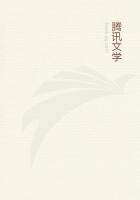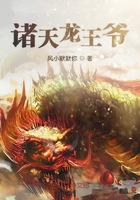Surely it is a pleasant thing that there are books, like other enjoyments, for all ages. You would not have a boy prefer whist to fives, nor tobacco to toffee, nor Tolstoi to Charles Lever. The ancients reckoned Tyrtaecus a fine poet, not that he was particularly melodious or reflective, but that he gave men heart to fight for their country. Charles Lever has done as much. In his biography, by Mr. Fitzpatrick, it is told that a widow lady had but one son, and for him she obtained an appointment at Woolwich. The boy was timid and nervous, and she fancied that she must find for him some other profession--perhaps that of literature. But he one day chanced on Lever's novels, and they put so much heart into him that his character quite altered, and he became the bravest of the brave.
Lever may not do as much for every one, but he does teach contempt of danger, or rather, delight in it: a gay, spontaneous, boyish kind of courage--Irish courage at its best. We may get more good from that than harm from all his tales of much punch and many drinking bouts. These are no longer in fashion and are not very gay reading, perhaps, but his stories and songs, his duels and battles and hunting scenes are as merry and as good as ever. Wild as they seem in the reading, they are not far from the truth, as may be gathered out of "Barrington's Memoirs," and their tales of the reckless Irish life some eighty years ago.
There were two men in Charles Lever--a glad man and a sad man. The gaiety was for his youth, when he poured out his "Lorrequers" and "O'Malleys," all the mirth and memories of his boyhood, all the tales of fighting and feasting he gleaned from battered, seasoned old warriors, like Major Monsoon. Even then, Mr. Thackeray, who knew him, and liked and laughed at him, recognised through his merriment "the fund of sadness beneath." "The author's character is NOT humour, but sentiment . . . extreme delicacy, sweetness and kindliness of heart. The spirits are mostly artificial, the fond is sadness, as appears to me to be that of most Irish writing and people." Even in "Charles O'Malley," what a true, dark picture that is of the duel beside the broad, angry river on the level waste under the wide grey sky! Charles has shot his opponent, Bodkin, and with Considine, his second, is ****** his escape. "Considine cried out suddenly, 'Too infamous, by Jove: we are murdered men!'""'What do you mean?' said I.
"'Don't you see that?' said he, pointing to something black which floated from a pole at the opposite side of the river.
"'Yes; what is it?'
"'It's his coat they've put upon an oar, to show the people he's killed--that's all. Every man here's his tenant; and look there!
they're not giving us much doubt as to their intentions.'
"Here a tremendous yell burst forth from the mass of people along the shore, which, rising to a terrific cry, sank gradually down to a low wailing, then rose and fell several times, as the Irish death-cry filled the air, and rose to heaven, as if imploring vengeance on a murderer."Passages like this, and that which follows--the dangerous voyage through the storm on the flooded Shannon, and through the reefs--are what Mr. Thackeray may have had in his mind when he spoke of Lever's underlying melancholy. Like other men with very high spirits, he had hours of gloom, and the sadness and the thoughtfulness that were in him came forth then and informed his later books. These are far more carefully written, far more cunningly constructed, than the old chapters written from month to month as the fit took him, with no more plan or premeditation than "Pickwick." But it is the early stories that we remember, and that he lives by--the pages thrown off at a heat, when he was a lively doctor with few patients, and was not over-attentive to them. These were the days of Harry Lorrequer and Tom Burke; characters that ran away with him, and took their own path through a merry world of diversion. Like the knights in Sir Thomas Malory, these heroes "ride at adventure," ride amazing horses that dread no leap, be it an Irish stone wall on a mountain crest, or be it the bayonets of a French square.
Mr. Lever's biographer has not been wholly successful in pleasing the critics, and he does not seem to affect very critical airs himself, but he tells a straightforward tale. The life of Charles Lever is the natural commentary on his novels. He was born at Dublin in 1806, the son of a builder or architect. At school he was very much flogged, and the odds are that he deserved these attentions, for he had high spirits beyond the patience of dominies.
Handsome, merry and clever, he read novels in school hours, wore a ring, and set up as a dandy. Even then he was in love with the young lady whom he married in the end. At a fight with boys of another school, he and a friend placed a mine under the ground occupied by the enemy, and blew them, more or less, into the air.
Many an eyebrow was singed off on that fatal day, when, for the only time, this romancer of the wars "smelled powder." He afterwards pleaded for his party before the worthy police magistrate, and showed great promise as a barrister. At Trinity College, Dublin, he was full of his fun, made ballads, sang them through the streets in disguise (like Fergusson, the Scottish poet), and one night collected thirty shillings in coppers.
The original of Frank Webber, in "Charles O'Malley," was a chum of his, and he took part in the wonderful practical jokes which he has made immortal in that novel.
From Trinity College, Dublin, Lever went to Gottingen, where he found fun and fighting enough among the German students. From that hour he became a citizen of the world, or, at least, of Europe, and perhaps, like the prophets, was most honoured when out of his own country. He returned to Dublin and took his degree in medicine, after playing a famous practical joke. A certain medical professor was wont to lecture in bed. One night he left town unexpectedly.



![火[合牛]供养仪轨](https://i.dudushu.com/images/book/2019/09/29/231346000.jpg)









